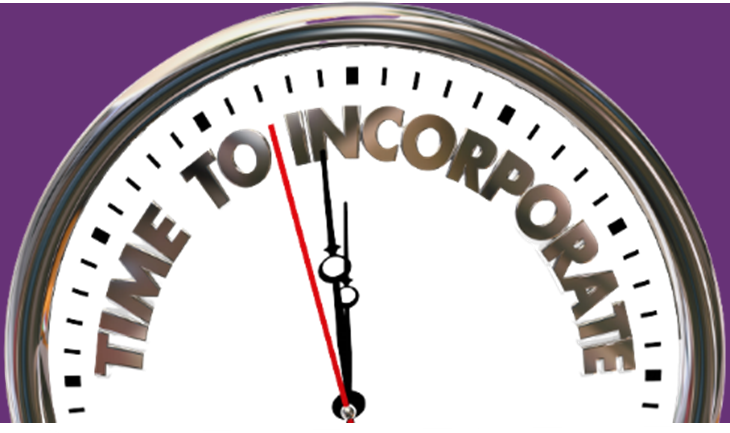
We are geared to know about personal tax time. Employers issue a T4 before the end of February and then we file our taxes on or before April 30. This happens year-over-year. Easy peasy!
But then you decide to start your own business. And you also decide to incorporate. This now opens a whole new world to understand.
What is the process now? What happens next? Where to begin?
In our office, the Fiscal Year-End process generally goes as follows.
AT YOUR FISCAL YEAR-END
Through our electronic signature program, we email an engagement letter which sets out the terms of our engagement. (i.e. financial statement report being issued, billing, privacy and confidentiality, working papers retention, etc.)
As well, we also include a list of documents which we will need to get started. This will typically include:
- Access to your QuickBooks Online or a copy of your QuickBooks file. Or if you do not use QuickBooks, a copy of your trial balance, balance sheet, profit & loss statement, and general ledger in Excel format.
- Summary of Accounts Receivable with balances noted for bad debts or write-offs.
- Summary of Accounts Payable with balances noted for write-offs.
- And a list of other questions we may have.
4-6 WEEKS AFTER YOUR FISCAL YEAR-END
 You will arrange a meeting with us via zoom/phone or email us the information we requested when you received our engagement letter.
You will arrange a meeting with us via zoom/phone or email us the information we requested when you received our engagement letter.
Why 4-6 weeks after? Because you need time to reconcile your bank accounts, loans and/or credit card statements. Unless you receive these electronically, they take time to come in the mail. As well, you might receive statements from vendors or suppliers which need to be recorded or accrued. We want to ensure all your income, expenses and other transactions have been recorded for the fiscal year-end we are going to complete.
FISCAL YEAR-END DOCUMENTS RECEIVED
Once we have your documents, we compile the financial statements. We prepare adjustments like bad debts, adjusting tax accounts, depreciation on your capital assets (i.e. equipment, leaseholds, computers, etc.) and such.
At this time, we will also do some tax planning. That might include a bonus to the shareholders (T4), issue dividends (T5), a combination of the two or some taxable income might even be left in the company which will pay tax at the small business rate.
The corporate tax return is also prepared during this process. Other tax filings might also be prepared at this time; i.e. GST returns, PST returns, and/or tax slips.
This process generally includes multiple emails and conversations.
FINAL FISCAL YEAR-END MEETING
We conclude by meeting via zoom or phone to review the financial statements and tax returns together. Once approved and signed, we file all tax documents with CRA. You will also receive an electronic copy of the financial statements, trial balance, adjusting entries, corporate tax return and any other tax filings we prepared.
FISCAL YEAR-END OVERALL PROCESSING TIME
As mentioned above, we like to get started about 4-6 weeks after your fiscal year-end. When we add our turnaround time of approximately 2-4 weeks (dependent on the time it takes for you to respond to our queries during preparation), you are already at the 2-3 month mark after your fiscal year-end. As a small business corporation, although the filing of your corporate tax return is due 6 months after your fiscal year-end, the payment of your corporate tax is generally due at the 3-month mark (for some clients, it is due 2 months after). If we are preparing other tax filings at the same time, they will also likely be due sooner than 6 months; i.e. GST returns filed annually are due 3 months after.
 Small businesses often struggle with cash flow. Although CRA requires corporate instalments on balances over $3,000, most small businesses do not pay in advance, so extra time is helpful for getting the payment together. As well, if our fiscal year-end queries or questions require extra time, we have the necessary time to plan and prepare. The more time, the better!
Small businesses often struggle with cash flow. Although CRA requires corporate instalments on balances over $3,000, most small businesses do not pay in advance, so extra time is helpful for getting the payment together. As well, if our fiscal year-end queries or questions require extra time, we have the necessary time to plan and prepare. The more time, the better!
Furthermore, if we decide to do a bonus, it must be paid out within 180 days. Although we can always defer the payment to the shareholder loan, the payroll tax must be paid by the 15th of the following month in which the bonus was paid. So again, the more time to plan, the better.
Easy peasy, right?!!? Obviously, the process and specifics will vary from client to client, but this is our general fiscal year-end process and general considerations are taken into account.
Oh and let us not forget, if you are a brand new incorporated company, choosing the right fiscal year-end date is very important and it is not always December 31 or 1-year from the incorporation date. Our blog, Choosing Your Fiscal Year-End, has some helpful tips on that too.
***This blog is for information only and not to be used as tax advice or planning without first seeking professional advice. Information is subject to change without notice.
